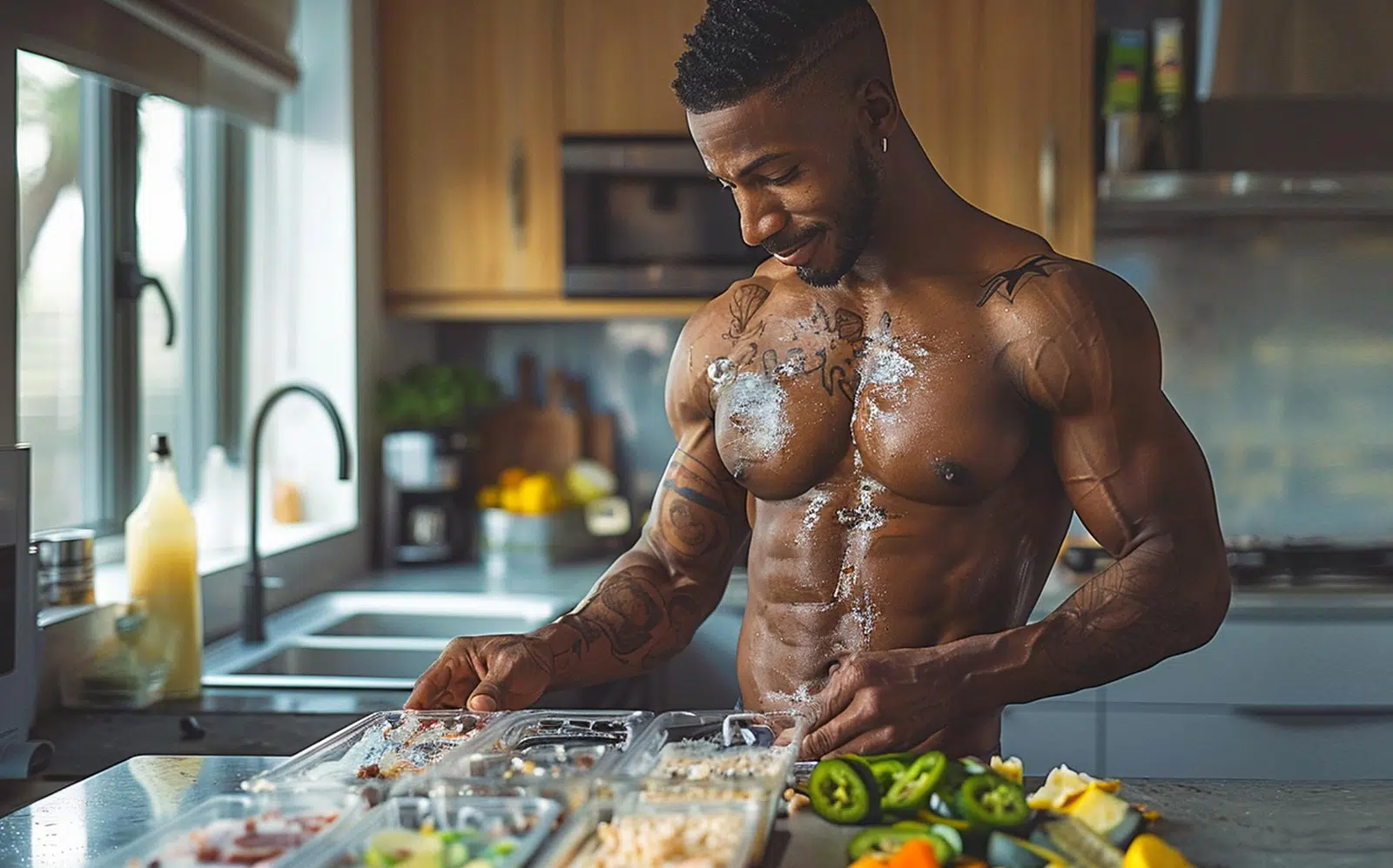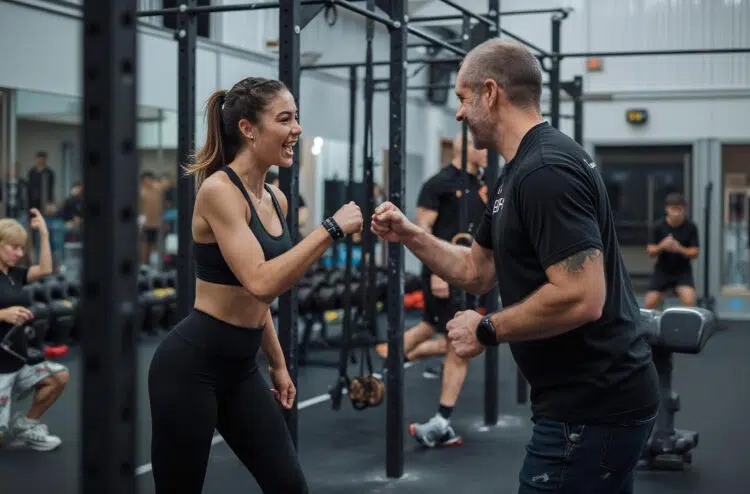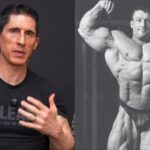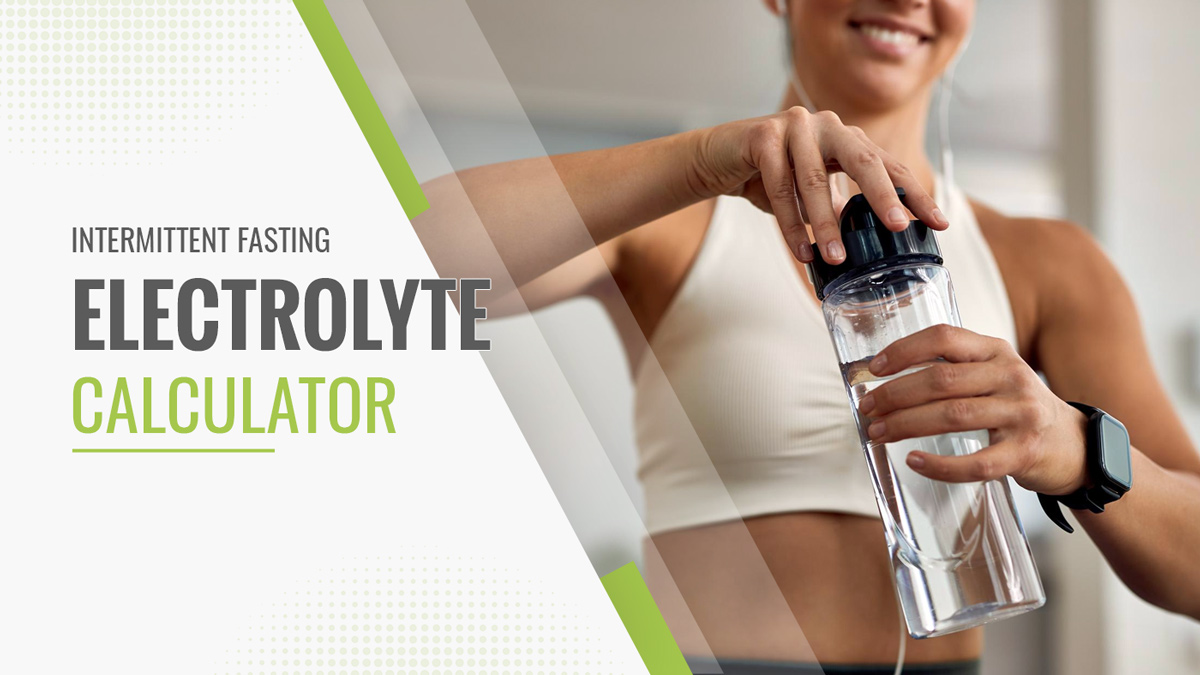Every day is a little different, especially when it comes to working out.
On some days, you are so psyched up that you cannot wait to get to the gym and crush some weights. On the flip side, there are days when you are just dragging your feet and praying for the workout to end.
It doesn’t end here. While some workouts might make you feel indestructible, you might feel half-dead after the others.
Fret not; it happens to the best of us.
However, you don’t have to accept this as part and parcel of lifting weights.
As a personal trainer with almost two decades of experience, I can attest that experimenting with different meal timings and sticking with what suits your lifestyle can make a major difference in your physical and mental performance and recovery.
In this article, I uncover four indicators that reveal whether your current meal timing strategy is helping or hindering your fitness journey. We’ll also discuss how you can make the adjustments in your lifestyle to get the best bang for your buck.
Without further ado, here is everything you need to know about meal timing for maximum workout performance:
1. Energy Levels: The Fuel Gauge
As fitness enthusiasts, we closely track what we eat, meticulously counting macros in our entrusted calorie-tracking apps.
However, we usually forget about one crucial piece of the puzzle — meal timing.
Optimizing your meal timing can be a game-changer, but most folks have no clue how to go about it. I won’t lie; there is so much contradicting advice on the subject, that it can make even seasoned pros feel lost.
Let’s dive into the holy trifecta of boosting training performance — pre-, intra-, and post-workout nutrition.
Pre-Workout Energy
Think of your body as a sports car. Just like you wouldn’t enter a race without enough fuel, you should never start a training session without a proper meal.
You can never hit a personal best in the gym while running on fumes. Sustained energy levels are key for optimal performance in the gym. But how do you achieve that? It all begins with ensuring a balanced macronutrient intake.
Protein is the building block of muscle, carbs are the body’s primary energy source, and healthy fats provide sustained energy release for longer workouts. No fancy pre-workout drink can replace a nutrient-dense pre-workout meal. (1)
Most experts recommend eating a balanced meal two to three hours before their training session. This allows the body ample time to digest and absorb the nutrients and deliver them to each muscle fiber in the body.
However, if you train early in the morning, try to eat something an hour before starting your workout.
Folks who don’t even have an hour can resort to a small piece of fruit or an energy gel. The simple carbs in these sources deliver the right amount of energy to get you through a 45 to 60-minute long workout.
Remember, eating a large meal too close to your workout can lead to sluggishness, indigestion, and even side stitches.
Intra-Workout Nutrition
If you are an intermediate or advanced lifter, your workouts likely stretch beyond an hour. In such cases, you might need to refuel during the training session to maintain intensity.
Experts recommend the following three ways to refuel intra-workout:
- Water: Dehydration is one of the biggest gain killers. Make sure that you are sipping on water throughout the session to minimize the risk of dizziness, fatigue, and muscle cramps.
- Easily digestible carbs: Energy gels, sports drinks, and gummies are handy sources of glucose, which can keep you going for extended periods without a dip in your performance.
- Electrolytes: You lose sodium and potassium via sweat. Electrolyte supplements can help maintain fluid balance and avoid cramps.
Impact on Performance Metrics
An optimal meal timing can have a major impact on your overall strength and power. Now, if you’re an endurance athlete, improper fueling can speed up the onset of fatigue and result in a drop in your stamina.
In my experience, people who overlook their diets generally report a higher rate of perceived exertion (RPE) than lifters following a streamlined nutrition program.
Post-Workout Recovery
Your work does not end after crushing a workout. In fact, I would argue that what you do next is even more important.
You break muscle fibers during your training sessions. They grow back bigger and stronger while you are resting and provide your body with ample nutrients for recovery.
Research shows that a higher protein intake after a workout is key to maximizing muscle protein synthesis and building bigger and stronger muscles. Plus, you must eat a healthy amount of carbohydrates to replenish your glycogen stores and avoid post-workout energy crashes. (2)
Use this total daily energy expenditure (TDEE) calculator to determine your ideal daily calorie and macronutrient goals.
Eat your post-workout meal within 30 to 60 minutes of your session. Even though the ‘anabolic window’ might not have enough scientific evidence backing it, there is no reason not to refuel your body after an intense workout. (3)
A protein shake with fruit, grilled chicken with sweet potatoes, or Greek yogurt with berries are some excellent post-workout meal options.
Your exact macro and micronutrient intake will vary depending on individual factors like age, gender, genetics, current fitness levels, and training objectives. I highly recommend beginners work with an experienced nutritionist to determine their ideal daily calorie intake and design a suitable diet that fits their lifestyle.
2. Digestive Comfort: A Gut Feeling
If you’ve been training for long enough, you’ve probably found yourself in a position where you had to step off the gas during a workout so you didn’t throw up all over the gym floor.
How about cramps? Ever had one of those during a training session?
Make no mistake, what you consume before, during, and after a workout can have a huge impact on your gut health, performance, and recovery.
Let’s touch upon pre- and post-workout nutrition and its impact on your digestive system.
Pre-Training Diet For Digestive Comfort
Avoid consuming heavy, greasy foods, like burgers and fries, before a workout as they take a long time to digest and can cause bloating, cramps, and sluggishness. Your body will be fighting hard to digest the food, and might not be able to handle the additional pressure from a high-intensity workout.
Plus, these food sources can lead to blood sugar spikes and crashes, which can leave you feeling drained mid-workout.
Coach Tip: While fiber is incredibly important, avoid consuming high doses of it before a training session, as it can result in gas, bloating, and GI distress. Remember, timing is everything.
Post-Workout Nutrition For Optimal Gut Microbiome
What you eat after a workout dictates your recovery and gut health.
Consume a healthy dose of protein and carbohydrates after your workout to kickstart recovery and promote gut health.
3. Recovery Speed: Bouncing Back Stronger
How your body responds to your workout and recovers from it can be a reliable indicator of determining whether your meal timing is optimal or not.
Here are the three biggest factors that you should look out for:
Muscle Soreness
We have all experienced delayed onset muscle soreness (DOMS) after an intense workout. It is so coveted that most of us are hoping for it as a reward for our hard work.
However, DOMS is not necessary for muscle and strength gains and can be offset with optimal nutrition.
When eating to limit muscle soreness, you must prioritize protein in your diet. Furthermore, certain foods with anti-inflammatory properties can help soothe aching muscles. Fruits, veggies, and fatty fish with omega-3s are some excellent food sources for fighting inflammation.
Glycogen Replenishment
Glycogen, derived from carbs, is our body’s primary source of fuel during exercise. You quickly burn through glycogen during an intense session but must ensure healthy glycogen reserves throughout the day for optimal, body functionality, and performance.
Here are a few simple carb guidelines to help you fuel for your workouts:
- Light workout: Rely on fruits, vegetables, and whole grains.
- Moderate workout: Eat starchy sources like rice, potatoes, and quinoa.
- Intense workout: Load up on easily accessible products, including sports drinks or gels.
Rest & Sleep
Proper sleep can make or break your transformation journey. Many of my personal training clients report feeling sluggish during their workouts when they don’t get enough sleep. This happens because your body repairs and rebuilds itself while you are fast asleep.
Experts recommend avoiding large meals close to bedtime. Consuming a big meal can fire up your digestive system, which can make falling asleep more challenging.
Consider consuming your final meal of the day, at least three hours before bedtime.
Plus, eat food rich in tryptophan and magnesium, as they can help promote sleep. Turkey, milk, nuts, spinach, and dark chocolate are some great options.
4. Mood & Motivation: The Mental Game
It shouldn’t come as a surprise that your meal timing can affect your mood and motivation, which can play a significant role in your results.
Pre-Workout Mindset
When we are trying to maximize physical performance, we sometimes forget that staying in the right headspace is just as important. What you eat before a workout can have a significant impact on how you feel.
How is that, you ask? Well, a dialed-in meal schedule ensures stable blood sugar levels, which optimizes neurotransmitter production and keeps you focused and motivated.
Eating foods rich in tyrosine, an amino acid that helps reduce dopamine, can give you a mental edge. Eggs, nuts, and chicken have ample of this compound. Plus, magnesium-rich foods, like spinach or bananas, can help with pre-workout anxiety, as they offer a calming effect.
Post-Workout Satisfaction
Although we usually focus on the muscle-building benefits of a protein-rich diet post-workout, it can also help support dopamine production. This can help create a positive feedback loop and reinforce your commitment to your transformation goals.
Consistency
This is one of the biggest errors that I see people make. When you are not eating right and recovering properly, your motivation to stay on track with your fitness objectives will diminish.
A balanced mind and a nutrition plan can help prevent burnout, mood swings, and even food cravings that can sabotage your efforts.
Experts recommend staying away from overly restrictive diets and quick fixes. Instead, prioritize creating a sustainable nutrition plan that suits your lifestyle, and something you can stick to for the long term.
Conclusion
Your meal timing can significantly impact your energy levels, mood and motivation, recovery speed, and digestive health. If you are unhappy with any of these areas, it is a signal that you need to make some adjustments to your lifestyle. Start with tweaking your meal timing.
Remember, make small adjustments to your meals initially, and stick to them for at least four to eight weeks. This will give you enough data points to assess if you’re on the right path.
If you have any questions about the four meal timing signals explained in this article, please drop them in the comments below, and I’ll be happy to help!
References:
- Kreider RB, Campbell B. Protein for exercise and recovery. Phys Sportsmed. 2009 Jun;37(2):13-21. doi: 10.3810/psm.2009.06.1705. PMID: 20048505.
- Sahni S, Mangano KM, Hannan MT, Kiel DP, McLean RR. Higher Protein Intake Is Associated with Higher Lean Mass and Quadriceps Muscle Strength in Adult Men and Women. J Nutr. 2015 Jul;145(7):1569-75. doi: 10.3945/jn.114.204925. Epub 2015 May 27. PMID: 26019246; PMCID: PMC4478942.
- Aragon AA, Schoenfeld BJ. Nutrient timing revisited: is there a post-exercise anabolic window? J Int Soc Sports Nutr. 2013 Jan 29;10(1):5. doi: 10.1186/1550-2783-10-5. PMID: 23360586; PMCID: PMC3577439.
Tip: If you're signed in to Google, tap Follow.














